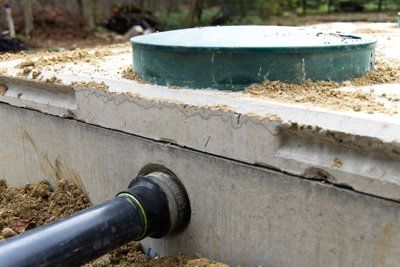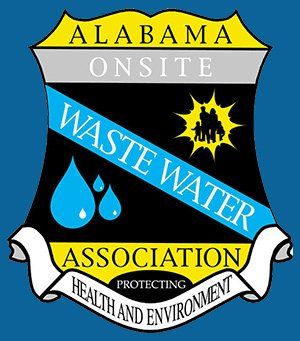SHOULD YOU GET A SEPTIC SYSTEM?
- By Admin
- •
- 13 Oct, 2017
- •

Like many people, you may wonder whether a septic system or sewage system is the better choice for your home. Both treat the water coming into and out of your home in a similar way, but there are also many differences. Here are the advantages and disadvantages of septic systems so you can decide what system is best for you.
THE ADVANTAGES OF SEPTIC SYSTEMS
Septic systems provide unique advantages for your home, especially when compared with sewage systems.
ENVIRONMENTALLY FRIENDLY
Septic tanks are known for being environmentally friendly. This is because they pump and treat your water without the use of energy or chemicals, relying on natural bacteria to break down the sewage, as opposed to sewer systems, which uses chemicals to treat the water.
When sewer systems get backed up, the chemicals used to treat the water flow out and end up in the rivers. Treatment plants can overflow when they are overused or there is more rain than they can handle. Septic tanks don't have this issue.
AVAILABLE
City-owned and operated sewage systems are costly or even unavailable when you live in a remote part of town. If you are looking to own a bit of land that's not in a cookie-cutter neighborhood, getting access to a sewage system will be very difficult and very expensive. Septic systems are available anywhere, even in remote locations.
AFFORDABLE
Sewage systems come with a price. Homeowners are charged monthly fees for the use of city-owned sewage systems, and that cost has the potential to rise when the sewage system needs upgrades or replacing. The average cost of a sewage system is in the $600 range per household.
The installation of a septic system is included in the cost of the house. The only regular fees required are in maintenance.
EASY TO KEEP CLEAR
Sewage systems tend to get clogged because of their one centralized drain field. Too much hair and grease will clog up the lines and plug up your sinks and bathtubs.
Septic systems allow you to be only user of your drain field, so you and only you control what goes in it. This allows you to be smart about what goes into your system and you can easily avoid back-up.
THE DISADVANTAGES OF SEPTIC SYSTEMS
While septic systems have their perks, you have to know about the downsides before you make your choice.
PRONE TO LEAK
When you don't properly maintain your septic system, wastewater has the potential to contaminate the groundwater, including drinking water. This can cause serious health issues to those around you, as well as to the bodies of water in your area. The water from sewer systems is sent to a centralized plant where it is treated, so if there is a problem, it's not in your back yard.
HARD TO MAINTAIN
One of the biggest downsides of a septic tank is the maintenance. While it doesn't have to be done frequently, annual inspections are recommended. And if something breaks down, it is the responsibility of the homeowner to either fix it or pay to have it fixed.
Regular maintenance done by a professional, including inspections and fixing broken or cracked pieces, will prevent back-up, leaks, and contamination, but it is still up to the homeowner how often that happens and how they will pay for it.
There are advantages and disadvantages to both sewer and septic systems. If the environment, availability, price and clogs are more of a concern for you, then go with a septic system. If you're worried about the responsibility of maintenance or leaks, then go with sewer.
Regardless of your septic system needs, whether you're dealing with system issues, you need an inspection or cleaning, or you want a full installation, call Allen Turner Septic Tank Service. With over 40 years of experience and 24 hours availability, we are your best option for all of your septic system needs.Septic tanks are important for the treatment of wastewater treatment. Read this blog on the various aspects of septic tank replacement.
When you grow up in a house, you typically won't have a manual of what to flush down the toilet. Discover common family flushing traditions to avoid.
Septic systems provide an effective solution for wastewater. Read this blog about some considerations to think through before installing a septic system.
What shouldn't go into your septic system? Read this blog to learn what products should not enter your septic system through toilets or drains.
Many appliances in your home are the source of items that can damage your septic system. Discover some of those problematic appliances.
Washing laundry can affect your septic system’s operation. Consider the laundry tips from this blog post to protect your septic tank.
A septic system consists of components located underground that use natural techniques to treat wastewater. See the main types of septic systems for homes.
Septic tanks require proper care and maintenance to function correctly, and this can be complex if you have pets. See septic tank care tips for pet owners.
Maintenance costs for septic tanks can add up, but you do not have to spend a fortune. Learn how proper care can save you money on septic services.
For the best septic tank services, careful considerations are necessary. Discover a few qualities to look for in the septic tank company you hire.

